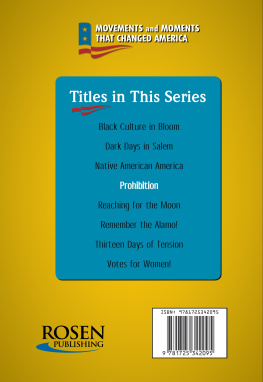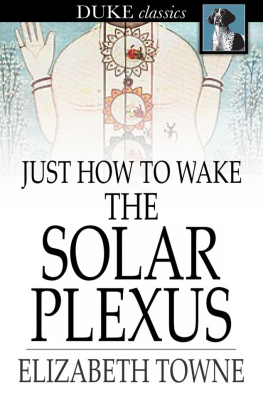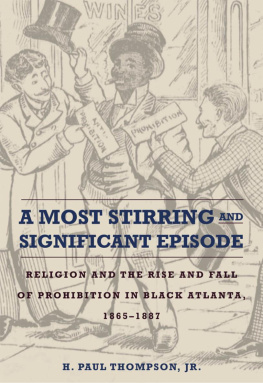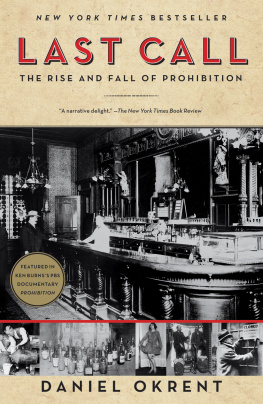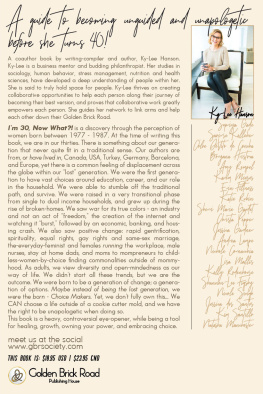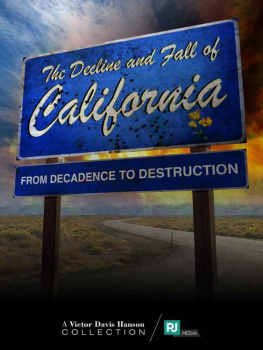Charles Hanson Towne - The Rise and Fall of Prohibition
Here you can read online Charles Hanson Towne - The Rise and Fall of Prohibition full text of the book (entire story) in english for free. Download pdf and epub, get meaning, cover and reviews about this ebook. year: 2019, publisher: Echo Library, genre: Art. Description of the work, (preface) as well as reviews are available. Best literature library LitArk.com created for fans of good reading and offers a wide selection of genres:
Romance novel
Science fiction
Adventure
Detective
Science
History
Home and family
Prose
Art
Politics
Computer
Non-fiction
Religion
Business
Children
Humor
Choose a favorite category and find really read worthwhile books. Enjoy immersion in the world of imagination, feel the emotions of the characters or learn something new for yourself, make an fascinating discovery.

- Book:The Rise and Fall of Prohibition
- Author:
- Publisher:Echo Library
- Genre:
- Year:2019
- Rating:4 / 5
- Favourites:Add to favourites
- Your mark:
- 80
- 1
- 2
- 3
- 4
- 5
The Rise and Fall of Prohibition: summary, description and annotation
We offer to read an annotation, description, summary or preface (depends on what the author of the book "The Rise and Fall of Prohibition" wrote himself). If you haven't found the necessary information about the book — write in the comments, we will try to find it.
The Rise and Fall of Prohibition — read online for free the complete book (whole text) full work
Below is the text of the book, divided by pages. System saving the place of the last page read, allows you to conveniently read the book "The Rise and Fall of Prohibition" online for free, without having to search again every time where you left off. Put a bookmark, and you can go to the page where you finished reading at any time.
Font size:
Interval:
Bookmark:

OF PROHIBITION
NEW YORK BOSTON CHICAGO DALLAS
ATLANTA SAN FRANCISCO
LONDON BOMBAY CALCUTTA
MELBOURNE
TORONTO
OF PROHIBITION
AMENDMENT AND THE VOLSTEAD ACT HAVE
DONE TO THE UNITED STATES
CHARLES HANSON TOWNE
THE MACMILLAN COMPANY
1923
By THE MACMILLAN COMPANY
J. J. Little & Ives Company
New York, U. S. A.
JOHN M. DENISON
| CHAPTER | PAGE |
| I | The Phenomenon of Prohibition |
| II | Our Great Unhappiness |
| III | Our Endless Chain of Laws |
| IV | Too Much Verboten |
| V | Making the World Safe for De-mockery-cy |
| VI | The Infamous Volstead Act |
| VII | A Triumvirate Against Prohibition |
| VIII | The Fear for Thee, My Country |
| IX | Drying Up the Ocean |
| X | The Mullan-Gage Law, the Van Ness Act and the Hobert Act |
| XI | Bootlegging and Graft |
| XII | Dont Joke About Prohibition |
| XIII | How Canada Has Solved the Liquor Problem |
| XIV | Crime and Drunkenness |
| XV | The Literary Digests Canvass |
| XVI | Literature and Prohibition |
| XVII | America Today |
| XVIII | Other Reforms |
| XIX | Is Europe Going Dry? |
| XX | What Are We Going to Do About It? |
THE PHENOMENON OF PROHIBITION
Font size:
Interval:
Bookmark:
Similar books «The Rise and Fall of Prohibition»
Look at similar books to The Rise and Fall of Prohibition. We have selected literature similar in name and meaning in the hope of providing readers with more options to find new, interesting, not yet read works.
Discussion, reviews of the book The Rise and Fall of Prohibition and just readers' own opinions. Leave your comments, write what you think about the work, its meaning or the main characters. Specify what exactly you liked and what you didn't like, and why you think so.

